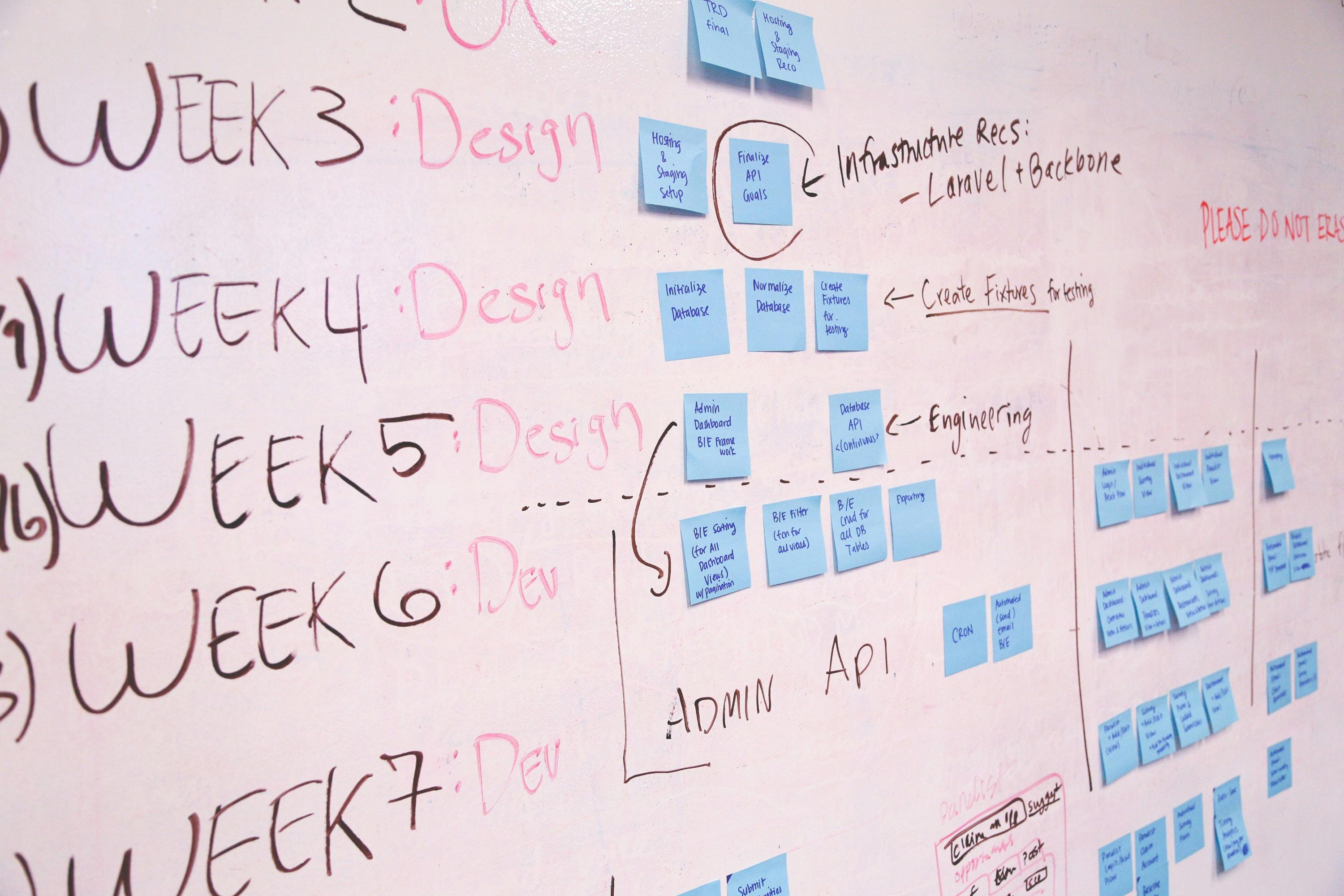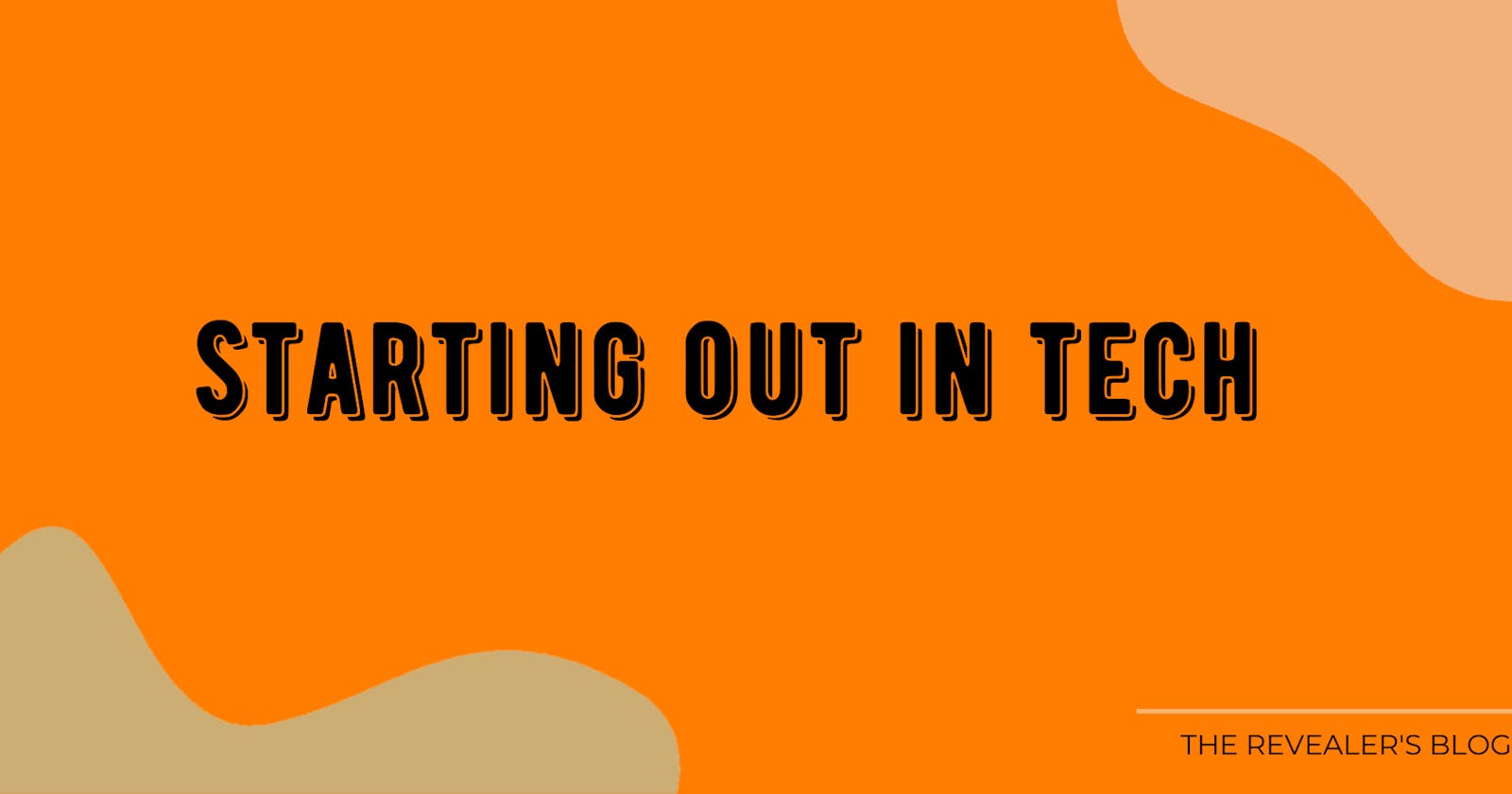Introduction
With the number of opportunities coming out every day in the tech industry, there has never been a better time to join than now. Starting can be a bit confusing because the technology field is so vast with numerous career paths to pick from, if you aren’t guided you might end up making wrong choices and wasting time.
By the end of this article, you would understand what it takes to break into the tech industry. Sit tight, take out your pen and notepads let’s jump right into it.
1. Make your research

The Tech industry is so vast, which means you have to be specific as to which path you would want to take. Making your research gives you background knowledge as to what that specified field looks like, how they work, and also gives you a preview as to if it's what you’d be able to do.
You can start by researching the major roles in tech below
•Web developer
•Software engineer
•Devops engineer
•Blockchain developer
•Game developer
•Data scientist
•Cloud architect
•Technical writer
•UI/UX designer
•Web designer
Knowing how to Google is an essential skill for getting the right information. When using search engines be very specific, for example, if I am to search on web development here’s how I’d do it.
• What do web developers do?
• What does it take to become a web developer.
• What does web development mean.
• What are the benefits of becoming a web developer.
When you search like this you're sure to get your required information, also learn to use keywords such as How, What and Why when searching for information.
2. Choosing rightly
 After making your research you have an idea of what it means to be in the tech industry. It's now time for you to choose your career path. Making a choice might seem overwhelming at first but here is a guide on how to do it.
After making your research you have an idea of what it means to be in the tech industry. It's now time for you to choose your career path. Making a choice might seem overwhelming at first but here is a guide on how to do it.
Seek Mentorship
Mentorship is influence, guidance or direction given by a mentor.
Just as you need guidance to succeed in every aspect of life, so it is in the tech industry. You need people who have gone ahead of you, gained experience and made mistakes to guide you. This way you won’t waste time doing the wrong things, this tends to make your process faster.
The tech industry is unique for having people who are dedicated to seeing others grow. So as much as possible, search for these people, ask questions about the path you're about to take up, and actively seek mentorship. Online or offline.
Consider Your Interests
When making these kinds of choices it is very important to consider your interests. Define;
•What draws your attention.
•What you love.
•What you do with ease.
•What you do well.
Then try and make a connection with the particular role it fits in tech. For example, if you have an eye for designs and you’re very creative with colors you should consider going for web design, also if you’re good with logic and math you should consider being a software engineer, if you have good writing and communication skills consider being a technical writer and so on.
It is important to note that irrespective of your current skills, you can take any path you want, what I mean is this, you don't have to be a maths genius to be a good software engineer, this also goes for every other career path in tech, just be ready to put in the hard work.
3. Online Resources
 Getting into tech has never been easier than it has been in this 24thcentury, there are loads of free and useful resources online to enhance your tech journey. You have no excuse, no excuse at all.
Getting into tech has never been easier than it has been in this 24thcentury, there are loads of free and useful resources online to enhance your tech journey. You have no excuse, no excuse at all.
Here is a list of platforms that can get you started in no time.
• w3schools
• freecodecamp
• youtube
• codeacademy
• udemy
• Coursera
• scrimba
Some of these platforms are free while some are paid which means it requires a certain fee or subscription to gain access to the courses, either way, whatever you get from these platforms is worthwhile.
As you explore these platforms, understand what works well for you, for example, you might be very good at learning with videos while some others might prefer books, pdfs, and documentation. Whatever the case may be pick what suits you best.
4. Draw A Roadmap

Every successful endeavor requires a plan. Civil engineers need house plans to make buildings, mechanical engineers need technical drawings to build machines, soldiers need battle plans to win battles.
The tech field isn't any different, every path has a road map(a plan). Make research, know what it is you need to learn for your path, then draw out a roadmap for it.
An example of a road map for a web developer is this;
•HTML
•CSS
•JAVASCRIPT
•REACT js
•Sass/Tailwind CSS
•GIT/GIT-Version control
Note that there aren't fixed patterns as to how and when you learn these technologies, make your roadmap unique to you.
5.The Learning Process

The first step is always the hardest. If you want to get what you've not gotten before you have to be ready to do what you've not done before.
Becoming a success in tech requires;
•Consistency--show up every day.
•Being Deliberate-- do everything for a specific reason.
•Connections -- make good relationships.
•Hardwork -- be ready to keep late nights.
•Online community -- make use of your social media.
It's okay if you don’t understand a particular concept. It's okay if you have to watch a tutorial twice. It's okay to be confused sometimes. It's okay to take breaks. It's okay to google what you don’t know.
It's all part of a process to becoming a success in your specified path, don’t ever think you’re not good enough, good things take time. The tech industry is not a place for get-rich-quick schemes. Also, do not rush your process, enjoy every bit of it. Your failures and wins are all part of your making, you're not in competition with anyone. Take your time.
5. Projects Based Learning
 You know what you’re to learn, you’ve drawn a learning roadmap and you’ve even started learning already. Now here’s a tip to speed up your learning process.
You know what you’re to learn, you’ve drawn a learning roadmap and you’ve even started learning already. Now here’s a tip to speed up your learning process.
Projects-based learning simply means you learn by doing. You want to understand a design concept, design a webpage. You want to learn a programming language build something with it. You want to understand how application packages work, build an app.
When you learn while building projects your learning becomes specific and much more productive. When you build you gain experiences and these experiences make you. it's important to note that the difference between you and senior engineers/developers is the experience they have, the number of projects they've worked on. So as much as possible while you follow tutorials, boot camps and courses actively build projects on your own. This, my friend, is one of the fastest tracks up your tech career.
Conclusion

Starting isn't hard, after all, am sure you gained one or two things, now go and crush it, you got this. Feel free to reach out to me on Twitter if you have any questions. Follow and watch out for my next post. Thank you.

